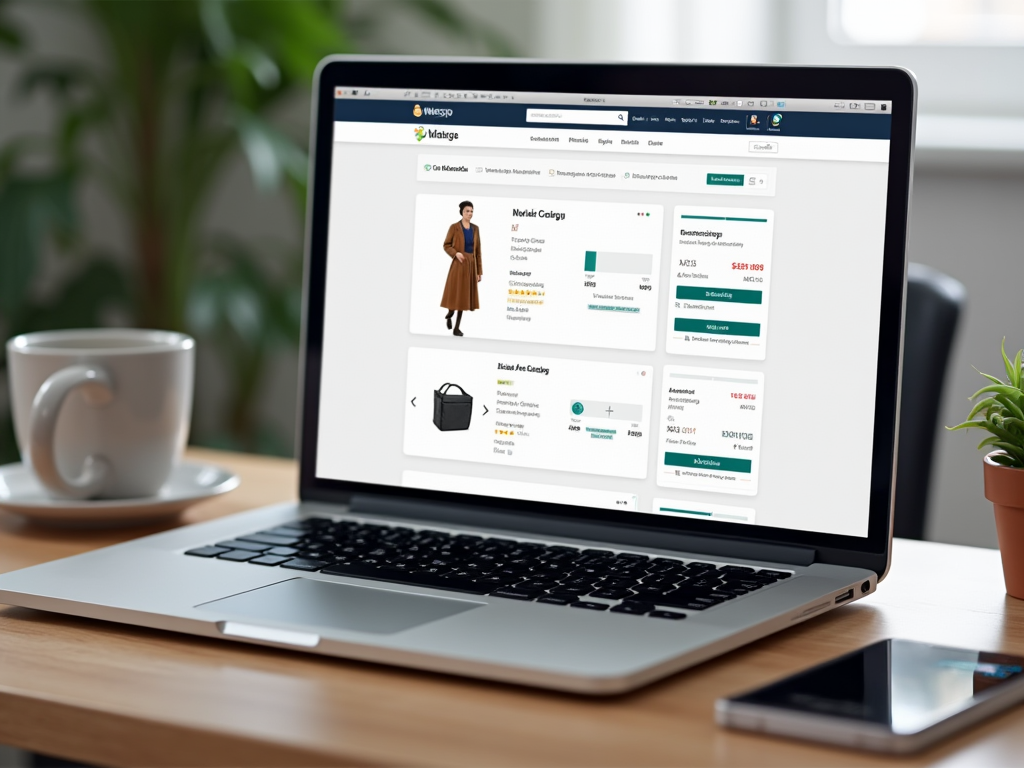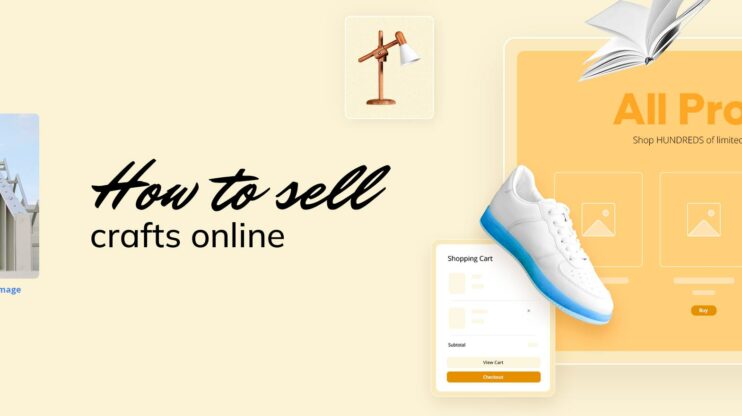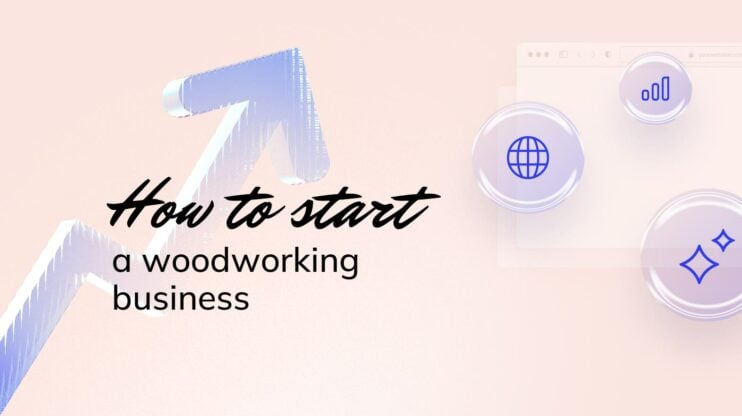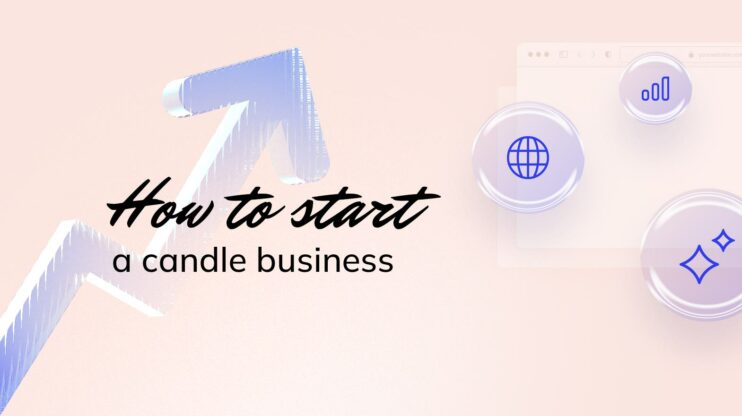As online retail continues to grow, businesses rely on efficient and adaptable tools to meet growing consumer demand. SaaS ecommerce platforms deliver a cloud-based approach for managing product listings, inventory, sales, and customer interactions—all necessary for streamlined retail operations.
This article explores 13 leading SaaS ecommerce platforms that are designed to simplify these tasks and fuel business growth. With the right platform, retailers can unlock exciting opportunities for scalable growth, broader reach, and the cost-saving advantages of SaaS technology, making these platforms a powerful asset.
FAQ
What is SaaS ecommerce?
What are the SaaS platforms?
- Shopify: A leading ecommerce platform that allows users to create online stores.
- BigCommerce: Another robust ecommerce platform with a range of features for online retailers.
- 10Web: A platform that provides a range of services for building and managing WordPress websites, including ecommerce solutions.
- Salesforce: A customer relationship management (CRM) platform that offers various business solutions.
What is SAS ecommerce? Is Amazon.com a SaaS platform? Looking to sell online? Develop and launch your store with 10Web AI Ecommerce Website Builder.

Create your online store in minutes!
Understanding SaaS ecommerce platforms
SaaS ecommerce platforms offer online businesses a powerful way to sell products and manage operations. These cloud-based solutions provide the tools and infrastructure needed to run an online store without having to build everything from scratch.

Create your online store in minutes!
Looking to sell online? Develop and launch your store with 10Web AI Ecommerce Website Builder.
Definition and key features
SaaS stands for Software as a Service. It means the software is hosted and maintained by the provider, while you access it through the internet. For ecommerce, this includes features like:
- Product catalog management
- Shopping cart functionality
- Payment processing
- Order management
- Customer accounts
- Analytics and reporting
You don’t need to worry about servers, updates, or security – the SaaS company takes care of that. This lets you focus on growing your business instead of managing technology.

Key benefits of using a SaaS ecommerce platform
SaaS platforms make it faster and easier to launch an online store. You can often get up and running in days or weeks instead of months. They also tend to be more cost-effective, especially when starting out.
Other key benefits include:
- Regular updates with new features
- Built-in security and compliance
- Ability to scale as your business grows
- Integration with other business tools
- Mobile-friendly designs
You get access to advanced capabilities without needing a big tech team. This levels the playing field, letting small businesses compete with larger companies online.
| Pros | Cons |
| Faster launch | Less customization |
| Lower upfront costs | Ongoing subscription fees |
| Automatic updates | Reliance on provider |
| Built-in security | Potential downtime |

Create your online store in minutes!
Looking to sell online? Develop and launch your store with 10Web AI Ecommerce Website Builder.
Implementation strategies
Setting up a SaaS ecommerce platform requires careful planning and execution. Different approaches suit different business needs, so it’s important to understand your options and make informed choices.

Difference between a traditional ecommerce and a SaaS ecommerce platform
Traditional ecommerce platforms are installed and run on your own servers. You have full control over the software and data, but you’re responsible for maintenance, updates, and security. This can be costly and time-consuming.
SaaS ecommerce platforms are hosted in the cloud. The provider manages the technical aspects, letting you focus on running your business. These platforms offer:
- Quick setup
- Automatic updates
- Built-in security
- Scalability
- Lower upfront costs
You pay a monthly fee instead of large initial investments. This makes SaaS platforms a good fit for small to medium-sized businesses or those just starting out.
Choosing the right platform
Picking the best SaaS ecommerce platform for your needs involves looking at several factors:
- Features: Make sure the platform has the tools you need to run your store.
- Pricing: Look at monthly fees and transaction costs. Some platforms charge more as you grow.
- Ease of use: Try out demos to see which interface you like best.
- Customization: Check how much you can change the look and feel of your store.
- Integrations: Guarantee the platform works with other tools you use, like accounting software.
Make a list of your must-have features and compare different platforms. Don’t forget to read user reviews and ask for recommendations from other business owners.

Create your online store in minutes!
Looking to sell online? Develop and launch your store with 10Web AI Ecommerce Website Builder.
Integrating with existing systems
Connecting your new SaaS ecommerce platform with your current business tools is key for smooth operations. Here are some tips:
- List all the systems you need to connect, such as inventory management or CRM.
- Check if the ecommerce platform has built-in integrations for these systems.
- Look for third-party apps or plugins that can bridge any gaps.
- Plan for data migration from your old system to the new one.
You might need help from IT professionals for complex integrations. Some SaaS providers offer support services to help with setup and connections.
Remember to test all integrations before going live. This helps catch any issues early and ensures a smoother launch for your online store.
| Pros | Cons |
| Quick setup and launch | Less control over the software |
| Lower upfront costs | Ongoing monthly fees |
| Automatic updates and maintenance | Possible limitations on customization |
| Scalability for growing businesses | Reliance on the provider’s uptime and support |
13 of the best SaaS ecommerce platforms
Here are 13 of the top SaaS ecommerce platforms available today, each offering unique features and capabilities to support streamlined retail operations and drive growth. From powerful tools for inventory and order management to customizable options for scaling your business, these platforms provide solutions that meet a variety of ecommerce needs.

1. Shopify
Shopify is a leading ecommerce platform that offers a complete suite of tools for online retailers. You can use it to create and manage your online store, process payments, and handle inventory. The platform is known for its user-friendly interface and wide range of features.
Shopify provides built-in tools for inventory management, customer support, and fulfillment assistance. You can access these features 24/7, making it easier to run your business at any time. The platform also offers a variety of apps and integrations to extend its functionality.
One of the biggest advantages of Shopify is its high conversion rate. The checkout process is designed to turn visitors into customers more effectively than many other platforms. This can help increase your sales and grow your business.
Shopify works well for businesses of all sizes, from small startups to large enterprises. You can start with a basic plan and scale up as your business grows. The platform offers different pricing tiers to fit various needs and budgets.
While Shopify has many strengths, it’s not perfect for everyone. Some users find the transaction fees on certain plans to be high. Others may feel limited by the design options if they want a highly customized store.
| Pros | Cons |
| User-friendly interface | Transaction fees on some plans |
| High conversion rates | Limited design customization |
| Scalable for different business sizes | Can be pricey for advanced features |
2. 10Web
10Web.io is a platform that helps you create and manage websites easily. It offers the 10Web AI Website Builder that can make a site for you in just a few minutes. You can also use 10Web to set up an online store quickly.

One great thing about 10Web is its speed. The websites it creates are fast and perform well. After generating the website, users will have the freedom to customize it however they want with the drag-and-drop editor. This can help your visitors have a better experience. 10Web also takes care of hosting your site, so you don’t have to worry about that part. The platform works best for simpler websites and stores.
One of the biggest advantages of using 10Web is that it offers ultra-fast SaaS hosting partnered with Google Cloud, which is also powered by AI. With 24/7 customer support, you will be guaranteed that whatever questions you have will be answered quickly by a team of experts in the field, thus eliminating the possibility of having to wait long periods to solve a problem.
10Web makes starting a website or online store easy, even if you’re not tech-savvy. It’s a good choice for small business owners or individuals who want to get online quickly without a lot of technical effort.
| Pros | Cons |
| Fast website creation | Limited to WordPress sites |
| AI-powered tools | Higher costs |
| Includes SaaS hosting |

Create your online store in minutes!
Looking to sell online? Develop and launch your store with 10Web AI Ecommerce Website Builder.
3. BigCommerce
BigCommerce is a popular SaaS ecommerce platform for businesses of all sizes. It offers a range of features to help you create and manage your online store. The platform is known for its flexibility and scalability.
BigCommerce provides tools for B2B, B2C, and omnichannel selling. You can easily customize your storefront and integrate it with other systems. The platform also supports international commerce, letting you sell globally.
Many users like BigCommerce for its strong SEO features and built-in marketing tools. It has a large partner ecosystem, which gives you access to many apps and integrations. The platform also gets high marks for customer satisfaction.
Some users find BigCommerce’s learning curve a bit steep at first. The platform can be complex for beginners. Some also feel that the template options are limited compared to other platforms.
BigCommerce is a good choice if you want a powerful, customizable ecommerce solution. It’s especially suited for mid-sized to large businesses with plans to grow.
| Pros | Cons |
| Flexible and scalable | Steep learning curve for beginners |
| Strong SEO and marketing tools | Limited template options |
| Large partner ecosystem | Can be complex for small businesses |
4. Wix ecommerce
Wix offers a popular ecommerce platform for building and managing online stores. You can create a professional-looking website with their drag-and-drop editor and choose from hundreds of customizable templates.
Wix ecommerce plans include essential features like product listings, order management, and payment processing. You can sell on Facebook and Instagram, expanding your reach to social media customers.
The platform stands out for its flexibility. You can add features as your business grows, from basic product sales to more advanced tools for larger operations.
Wix is a good fit for small businesses and entrepreneurs just starting out in ecommerce. Its user-friendly interface makes it easy to set up and manage your online store without technical expertise.
| Pros | Cons |
| Easy-to-use website builder | Limited advanced features on basic plans |
| Many customizable templates | Can be pricier than some competitors |
| Built-in marketing tools | May outgrow platform as business expands |
5. Magento
Magento is a powerful ecommerce platform for businesses of all sizes. It offers a wide range of features to help you create and manage your online store. You can use Magento to build both B2C and B2B shopping experiences.
Magento gives you lots of options to customize your store. You can choose from many different themes and add extra features with extensions. The platform also lets you manage multiple stores from one account.
One great thing about Magento is its flexibility. You can change almost anything to fit your needs. It also works well for businesses that want to grow big or sell in different countries.
But Magento can be tricky to use if you’re not tech-savvy. It often needs experts to set up and run properly. This can make it more expensive than simpler platforms.
We picked Magento because it’s so customizable and scalable. It’s ideal for businesses that want a lot of control over their online store and plan to grow.
| Pros | Cons |
| Very customizable | Can be complex to use |
| Scalable for growth | Often needs expert help |
| Good for B2B and B2C | Can be expensive |

Create your online store in minutes!
Looking to sell online? Develop and launch your store with 10Web AI Ecommerce Website Builder.
6. Squarespace
Squarespace is a website builder and ecommerce platform that lets you create an online store. It’s part of the larger Squarespace ecosystem, known for its sleek designs and user-friendly interface.
You can easily set up product pages, manage inventory, and process payments with Squarespace. The platform offers built-in tools for SEO, email marketing, and social media integration to help grow your business.
One of the standout features is the ability to customize your store’s look without needing coding skills. You can choose from various templates and tweak them to match your brand.
Squarespace handles both digital and physical products. You can offer local delivery, pickup, or standard shipping options. The platform also lets you buy and print shipping labels directly.
On the downside, Squarespace’s ecommerce features are only available on higher-priced plans. Some users find the platform less flexible for complex stores compared to dedicated ecommerce solutions.
| Pros | Cons |
| Easy to use | Limited advanced features |
| Beautiful templates | Higher pricing for ecommerce |
| All-in-one platform | Less flexible for complex stores |
7. Woocommerce
WooCommerce is a free plugin that turns WordPress websites into online stores. You can sell products, manage inventory, and process payments with this platform. It’s popular due to its flexibility and large user base.
You’ll like WooCommerce’s ease of use if you’re already familiar with WordPress. The basic plugin is free, and you can add features as needed. There are many themes and extensions available to customize your store.
One downside is that WooCommerce requires more technical knowledge than some other platforms. You’ll need to handle hosting, security, and updates yourself. This can be challenging if you’re new to ecommerce.
WooCommerce stands out for its flexibility. You have full control over your store’s design and features. This makes it a good choice if you want a unique, customizable shop.
The platform works best for small to medium-sized businesses who want control over their online store. It’s ideal if you already use WordPress or have some technical skills.
| Pros | Cons |
| Free core plugin | Requires technical knowledge |
| Highly customizable | Can be costly with add-ons |
| Large user community | Requires self-hosting |
8. PrestaShop
PrestaShop is a free, open-source ecommerce platform that lets you create and manage online stores. It offers a wide range of features to help you sell products and grow your business online.
You can customize PrestaShop to fit your needs using modules and themes. The platform supports multiple languages and currencies, making it suitable for international selling.
PrestaShop provides tools for inventory management, order processing, and customer relationship management. You can also use it to handle shipping, taxes, and payments.
One advantage of PrestaShop is its large community of developers and users. This means you can find plenty of support and resources online.
A potential drawback is that PrestaShop can be complex to set up and maintain if you’re not tech-savvy. You might need to hire a developer for custom features or troubleshooting.
This platform is a good choice if you want a flexible, customizable ecommerce solution and don’t mind a steeper learning curve. PrestaShop works well for small to medium-sized businesses that want full control over their online store and have some technical skills or resources.
| Pros | Cons |
| Free and open-source | Can be complex to set up |
| Highly customizable | May require technical skills |
| Large community support | Hosting costs not included |
| Supports multiple languages and currencies | Some features need to be paid add-ons |
9. OpenCart
OpenCart is a popular open-source ecommerce platform. It gives you the tools to build and run an online store. You can use OpenCart to sell products, manage inventory, and process payments.
OpenCart is known for its user-friendly interface. You can set up a basic store quickly without needing to code. It offers a range of features out of the box, including multi-store support and product reviews.
Many users like OpenCart for its flexibility. You can customize your store’s look and add new features with extensions. There’s a large community of developers creating add-ons for the platform.
On the downside, some users find OpenCart’s built-in SEO tools limited. You might need plugins for advanced SEO features. The platform can also be slow without optimization.
We picked OpenCart for its balance of simplicity and power. It’s a good fit for small to medium-sized businesses starting their online journey.
| Pros | Cons |
| Free and open-source | Limited built-in SEO tools |
| User-friendly interface | Can be slow without optimization |
| Large community and marketplace | May need paid extensions for some features |

Create your online store in minutes!
Looking to sell online? Develop and launch your store with 10Web AI Ecommerce Website Builder.
10. Volusion
Volusion is a popular ecommerce platform that helps businesses create and manage online stores. It offers a range of tools to set up your shop, handle inventory, and process payments.
You’ll find Volusion easy to use, with a straightforward interface for building your store. The platform provides templates to get you started quickly, and you can customize them to match your brand.
One thing you might like about Volusion is its built-in SEO features. These can help your store show up better in search results. The platform also includes marketing tools like email campaigns to reach more customers.
On the downside, some users find Volusion’s pricing a bit high compared to other options. The platform’s plans start at $26 per month and go up to $299 per month for larger businesses.
Volusion made this list because it’s a solid choice for mid-sized companies looking for a full-featured ecommerce solution. It’s best for businesses that want an all-in-one platform and don’t mind paying a bit more for extra features.
| Pros | Cons |
| Easy-to-use interface | Higher pricing than some competitors |
| Built-in SEO tools | Limited free themes |
| Good inventory management | Transaction fees on lower-tier plans |
11. Salesforce Commerce Cloud
Salesforce Commerce Cloud is a powerful ecommerce platform that helps businesses grow their online sales. It offers tools for both B2C and B2B companies to create and manage their online stores.
You can use Salesforce Commerce Cloud to build your website, process orders, and handle payments. It connects with other Salesforce products to give you a complete view of your customers. The platform is flexible and can work for small shops or big retailers. You can customize it to fit your needs and add new features as your business grows.
Commerce Cloud helps you sell across different channels. This means you can reach customers on your website, social media, and even in physical stores.
On the downside, some users find it complex to set up and use. It might take time to learn all the features.
| Pros | Cons |
| Connects with other Salesforce products | May require training to use it effectively |
| Works for both B2C and B2B | Pricing not publicly available |
| Offers personalization tools | Can be complex to set up |
12. Ecwid by Lightspeed
Ecwid by Lightspeed is a cloud-based ecommerce platform that lets you add an online store to your existing website. You can use it to sell products across multiple channels, including social media and marketplaces. The platform offers features for inventory management, order processing, and customer relationship management.
Ecwid stands out for its ease of use and flexibility. You can quickly set up a shop without technical skills. The platform integrates smoothly with many website builders and content management systems. It also provides tools for multichannel selling, making it simple to reach customers wherever they are.
Some users find Ecwid’s design options limited compared to other platforms. The checkout process can be less customizable than some merchants prefer. Advanced features are often restricted to higher-priced plans, which may frustrate growing businesses.
Ecwid is best suited for entrepreneurs and small businesses that want to add ecommerce to their existing websites or sell across multiple channels with minimal hassle.
| Pros | Cons |
| Easy to use | Limited design options |
| Multichannel selling | Less customizable checkout |
| Free plan available | Advanced features on higher plans only |
13. Shopware
Shopware is a powerful ecommerce platform that offers both SaaS and PaaS solutions. It provides businesses with the tools to create and manage online stores easily.
You’ll find Shopware’s platform highly flexible and customizable. It lets you build a fully responsive online store that blends design and functionality seamlessly. This makes it great for businesses of all sizes, from small startups to large enterprises.
The platform comes with advanced features for developing and deploying your business strategy quickly and securely. You get access to core components, giving you full control over your ecommerce infrastructure.
Shopware’s PaaS option is perfect if you have a development team and want maximum flexibility. It helps you avoid common ecommerce challenges with turnkey capabilities based on their expertise from many projects.
One big plus is that Shopware lets you keep control of your customer data. This is important for businesses that value owning their information.
| Pros | Cons |
| Highly flexible and customizable | Requires technical skills for full customization |
| Offers both SaaS and PaaS options | Complex for beginners |
| Advanced features for quick deployment | Higher pricing than some competitors |

Create your online store in minutes!
Looking to sell online? Develop and launch your store with 10Web AI Ecommerce Website Builder.
Conclusion
Selecting the right SaaS ecommerce platform can be a game-changer for online retailers, providing the tools they need to streamline operations and foster growth. With options that support everything from inventory management to customer engagement, these platforms make it possible to scale efficiently, reach a wider audience, and reduce costs. Businesses can stay competitive in the market and continue to meet the demands of online shoppers by choosing the solution that best aligns with their unique needs.













